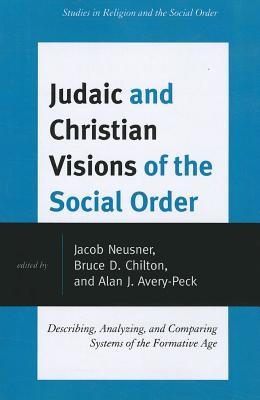
- We will send in 10–14 business days.
- Publisher: University Press of America
- ISBN-10: 0761856358
- ISBN-13: 9780761856351
- Format: 16.1 x 23.5 x 2.8 cm, softcover
- Language: English
- SAVE -10% with code: EXTRA
Judaic and Christian Visions of the Social Order (e-book) (used book) | bookbook.eu
Reviews
Description
Free-standing ideas form systems when random facts coalescing in a set of abstract propositions can be shown logically to cohere. We know that that is so when ideas intersect and can be shown to accommodate new problems and generate answers to fresh questions. The system exhibits its cogency by fixing upon one thing and saying it in many ways. That emerges when the evidence of a particular conception of the social order turns out to concern itself with a generative question and to recapitulate an answer that is repeated many times over. In that way the writings that in theory form a system of the social order signal their logic by what they deem self-evident. The essays address writings of formative Judaism in the time of the Mishnah and the Talmud, the first six centuries of the Common Era, and formative Christianity in the first six centuries of the Common Era. They take up a common program of categories and consequent convictions: where Judaism and Christianity intersected. This seeks not just random points of agreement but fundamental structural congruence: the confluence of systems. That inquiry concerns shared organizing categories of religion and ethics of the two faiths. What concerns us is how Scriptures held in common produced a single construction of history and a common view of culture and society.
EXTRA 10 % discount with code: EXTRA
The promotion ends in 8d.10:47:00
The discount code is valid when purchasing from 10 €. Discounts do not stack.
- Publisher: University Press of America
- ISBN-10: 0761856358
- ISBN-13: 9780761856351
- Format: 16.1 x 23.5 x 2.8 cm, softcover
- Language: English English
Free-standing ideas form systems when random facts coalescing in a set of abstract propositions can be shown logically to cohere. We know that that is so when ideas intersect and can be shown to accommodate new problems and generate answers to fresh questions. The system exhibits its cogency by fixing upon one thing and saying it in many ways. That emerges when the evidence of a particular conception of the social order turns out to concern itself with a generative question and to recapitulate an answer that is repeated many times over. In that way the writings that in theory form a system of the social order signal their logic by what they deem self-evident. The essays address writings of formative Judaism in the time of the Mishnah and the Talmud, the first six centuries of the Common Era, and formative Christianity in the first six centuries of the Common Era. They take up a common program of categories and consequent convictions: where Judaism and Christianity intersected. This seeks not just random points of agreement but fundamental structural congruence: the confluence of systems. That inquiry concerns shared organizing categories of religion and ethics of the two faiths. What concerns us is how Scriptures held in common produced a single construction of history and a common view of culture and society.


Reviews